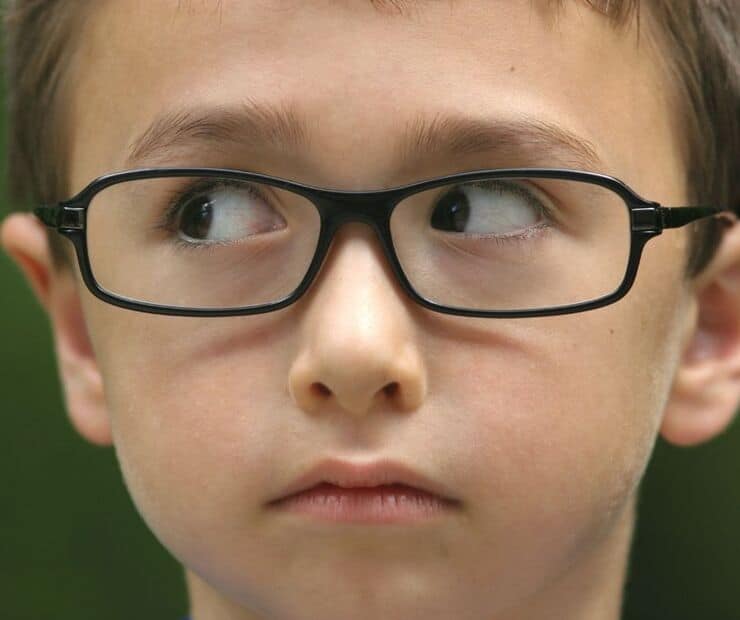
Dr. Erin Leonard, author of Emotional Terrorism: Breaking the Chains of a Toxic Relationship, offers advice for parents with troubled children. You can read more about Dr. Leonard in the Meet Our New Authors post.
Art became an outlet through which a troubled teen expressed himself back in 2008.
Russell Frantom, charged with conspiracy to commit murder for plotting a Columbine-style massacre at Penn High School, said he found himself through painting once he completed his sentence in juvenile detention.
“Art doesn’t judge” Frantom explained.
Each painting is like a diary entry; completed in one sitting, and an expression of all the emotions Frantom experiences at that given moment.
“If I get up and come back, my emotional state could be completely different,” said Frantom.
Some of the subject matter is darker than others, but his paintings have one thing in common: his signature dripping tears.
“It’s not complete without them,” Frantom added.
For Frantom, art is a healthy avenue through which he could say what he thinks and feels. He regrets not having something or someone close enough in his life seven years ago to help him through the time surrounding his arrest, but now Frantom claims he is rehabilitated.
Point of View of a Psychotherapist
According to Dr. Erin Leonard, a practicing psychotherapist specializing in adolescents and teens, the first thing to assess with apparently “troubled” teens is to determine whether the child has social interactions in the form of close personal attachments in their lives, or if they have isolated themselves because of a perception that society rejected them on a mass level.
“They feel rejected and so they reject,” Dr. Leonard explained, “When kids kind of become loners, they really do retreat to a dark place where, you know, fantasy gets intermingled with reality, which can be difficult because sometimes these kids can be narcissistic and can be enamored with power.”
Young people who feel entitled to see retribution or revenge, says Leonard, feel that way because of a personal wrong. But that sense of entitlement, Leonard attributes to personality disorders and a failed grasp of empathy.
“Developmentally, if they are sort of unevolved emotionally, those characteristics kind of lead to dangerous and volatile acts,” Leonard explains that parents, teachers, mentors, need to not only help children feel and understand empathy through interpersonal relationships but also understand and acknowledge the child’s emotions that are causing the vengeful thoughts.
Personality Disorders and Shooters
Leonard believes most school shooters have disordered personalities. They externalize blame, they fail to take personal responsibility in their life–including for their own happiness–because it’s easier to place blame on other segments of the population.
“These types of characteristics, personality characteristics, when they become extreme can distort that person’s reality,” Leonard added. On a mass level, these personality traits Leonard says can lead an individual to want to retaliate on a mass level.
“If you look at all the school shootings in the history of the United States, all of them involve a child who felt rejected on a mass level by society and then because they felt rejected by society, and because of their personality structure they then felt very entitled to seek retribution and to destroy others without remorse or empathy for who they were killing,” Leonard explained.
It’s the personality structure, said Leonard, not something like depression or anxiety that leads to shooting incidents. Disordered personalities, lack of empathy, and lack of personal accountability can blur the lines between reality and fantasy easily in these troubled teens.
“When fantasy wins, school shootings happen,” said Leonard.
Historically, mass shooters share a type of fascination with power. In her book, Leonard attributes that to fragile egos and a feeling of rejection.
By idealizing someone they see as super-powerful, Leonard argues children validate themselves, “a killer is the most powerful person out there. Everyone is afraid of a killer, everyone is afraid of a shooter. They are the most powerful people out there, so for a child who feels small, helpless, and worthless, if they do have a personality disorder, what they’re going to do is imitate and emulate them.”
Social Media
Investigators in the 2008 cybercrime case against Russell Frantom were quick to emphasize the importance of monitoring children’s behavior and activity on the internet.
For individuals with personality disorders, Dr. Leonard argues that social media can create a dehumanizing effect when talking about violence.
“So when they are not face-to-face looking at someone in the eye, it’s easier to dehumanize your target. When you dehumanize your target you feel entitled to control and condemn them. It’s the same dehumanizing characteristic that has happened with racism and sexism,” Leonard explained.
Looking from an outside standpoint at Frantom’s conversations and plots with Billi, Leonard believes the two validated one another’s pathological ideas about their realities, “which turned out to be very dangerous.”
What Parents Should Lookout For
When a parent has empathy, said Dr. Leonard, the child experiences empathy and then gains the capacity to have empathy for others.
Instead of focusing on disciplining anger and other emotions, Leonard argues parents should focus on first validating a child’s feelings and then directing that energy in a more positive direction.
“The trick is being open to how they feel,” Leonard explained, “emotions are emotions, they’re never wrong. It’s what we do with them that is the problem.”
There is a line between fascination with crime and violence and the capability of following through with those actions. Psychotherapists like Dr. Leonard argue that parents or guardians should involve themselves and seek out assistance if a child starts isolating himself or herself, expresses anger, and fails to maintain relationships.
For individuals with personality disorders, there is no permanent fix. According to Leonard, a balance of medication, therapy, and a stable lifestyle can secure an individual, but that it’s not guaranteed they won’t ever lose control.
